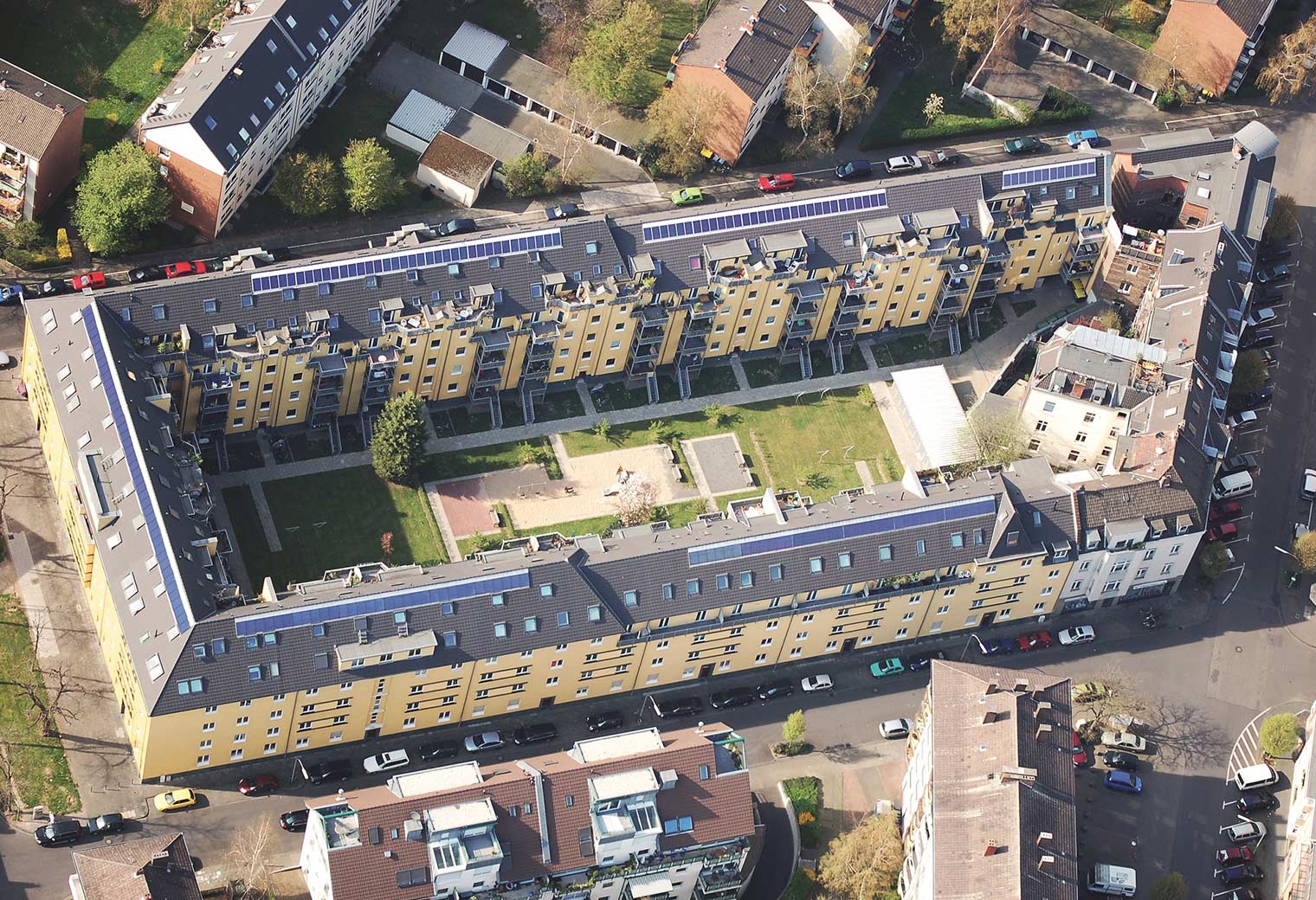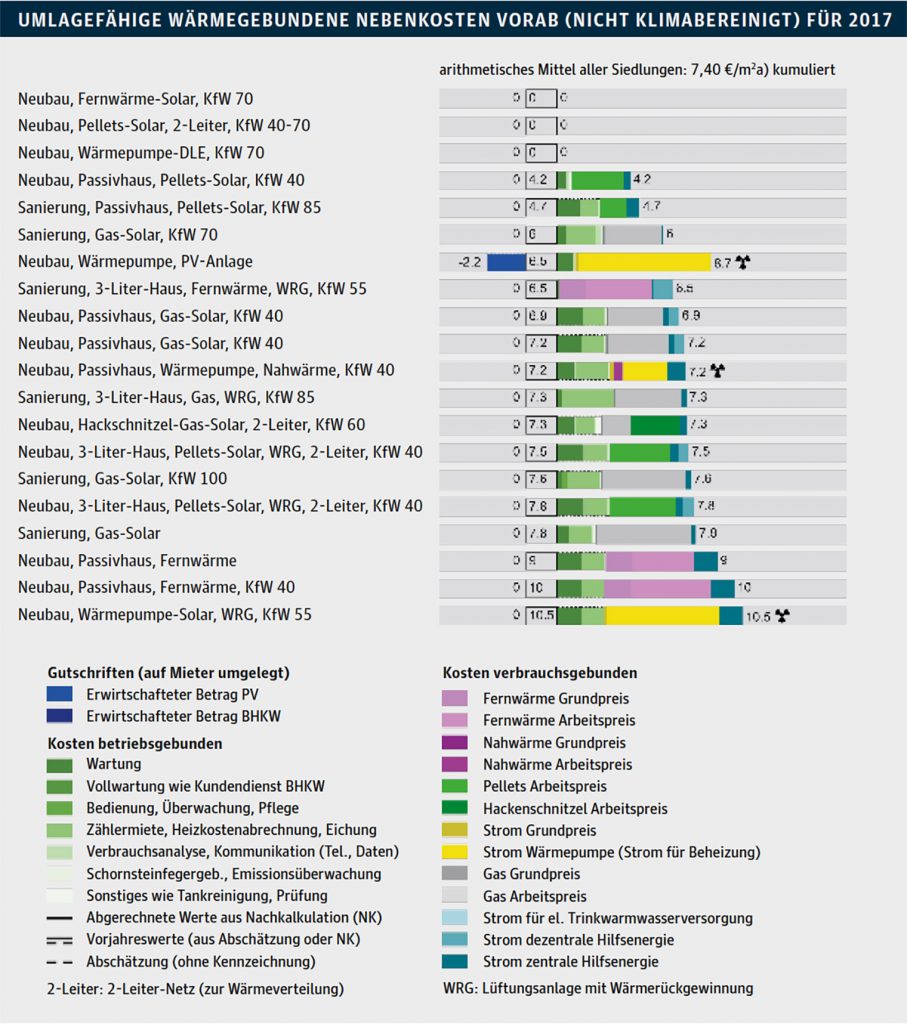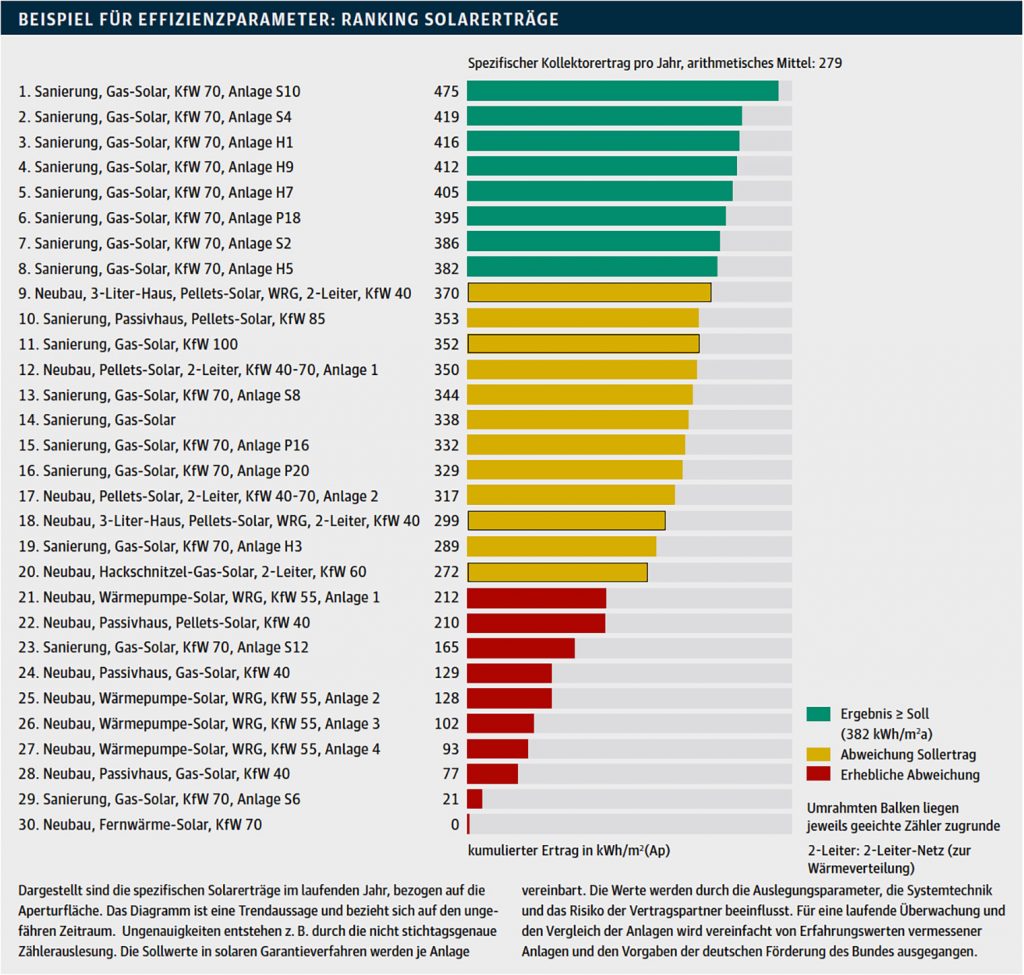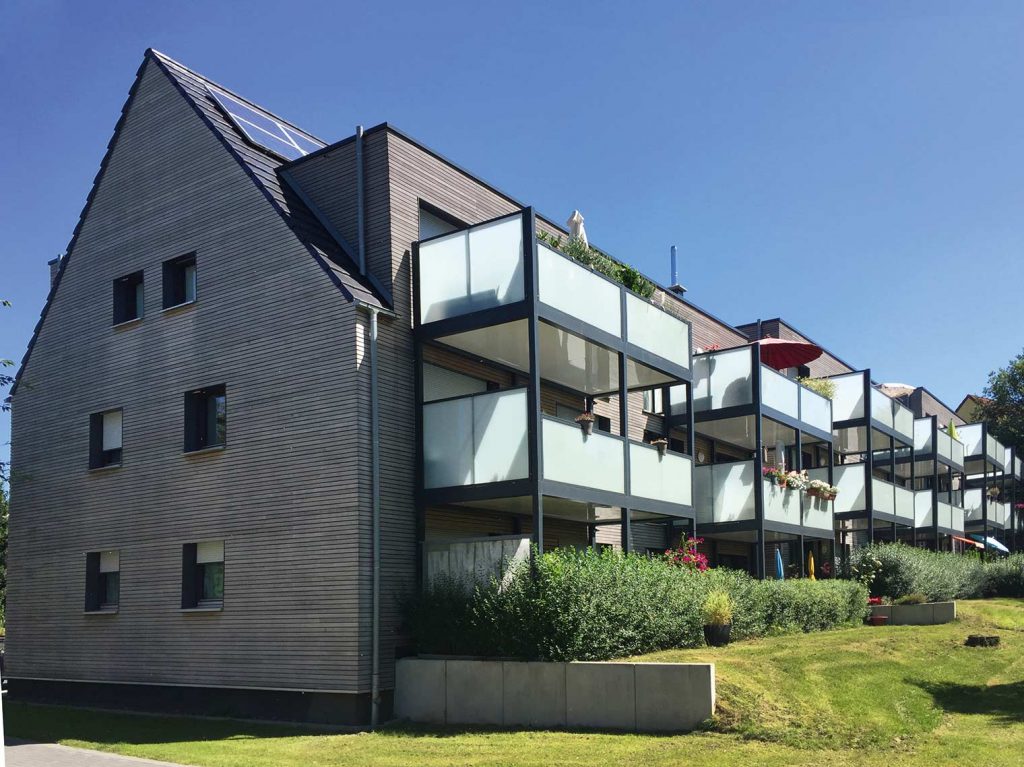Economic solutions
Long-term project reference controlling building
From the sham discussion about energy standards to economic solutions for a building energy turnaround
Long-term project Recongeb: competition for efficient use of funds to reduce heating costs shows first results and identifies robust measures.
The discussion about “a tightening of the EnEV”, passive houses, reduced insulation, tenant electricity, ice storage, all-electric or neighborhood solutions is usually based on insufficient studies and missing data. In the process, additional expenditures for measures that are actually effective in terms of energy are mixed up with those that have found their way into the construction industry in an “interest-driven” manner. The systematic evaluation and creation of a data basis is not carried out by the responsible organizations, associations and political institution. This is often done out of fear of disclosing errors. There is hardly any fact-based discussion of the costs of energy-efficient construction and refurbishment.
Here, the 15-year Reference Controlling Buildings (ReConGeb) project offers an alternative, as it represents a competition for the most effective investments in measures to achieve energy targets and promotes a culture of error. The first participants Erbbauverein Köln eG, Gem. Bauverein eG zu Ahlen, GEWOG Porz eG, GGH Heidelberg mbH, GWG 1897 Köln rrh eG, GWG Schwerte eG, hwg Hattingen eG, Rheinwohnungsbau GmbH, Wohnungsverein Hagen eG and private developers have now contributed 35 buildings to the project. Monthly reports are used to train robust and economical solutions, which can only be identified on the basis of evaluated and carefully documented exemplary projects. This article presents the first results.

As part of the “50 Solar Housing Estates NRW” program, the so-called “Green Block” from the 1920s was renovated and equipped with modern attic apartments. The energy concept of the Cologne “Solarsiedlung Riehl” combines high insulation standards, efficient distribution and use of gas and solar thermal energy with the associated quality assurance. The buildings with annual CO2 emissions of approx. 12 kg CO2/(m2a) for heating and hot water are pacesetters for the energy turnaround in the building sector
TARGET: HALF THE HEATING COSTS AND EMISSIONS FOR THE SAME INVESTMENT
The project is looking for solutions for new construction and refurbishment that represent an optimal balance for achieving investment, cost and climate protection targets. Robust standards are identified that can be implemented with manageable follow-up costs, even in the face of increasing shortages of skilled workers. Data required for this purpose is queried, independently prepared and made available. Benchmarks are created for these buildings based on measured values and billings. Monetary expenditures for energy measures and repair are placed in relation to heat-related ancillary costs.
The measurement of the final energy consumption for all energy sources used is central. As efficiency parameters, utilization rates, coefficients of operation and solar yields are determined. The climate protection targets for compliance with the max. global warming of 2°C are taken from the lead project 100 climate protection settlements NRW. The concrete target is heat-related ancillary costs of 6 EUR/m²a. The climate protection target values are 9 (new construction) and 12 kgCO2/m²a (refurbishment). Common high-efficiency buildings, including those in the Passive House and KfW 40 standards, currently fall short of these values by an average of about 50 % due to incorrect or missing targets and controls.
MULTIPLICATION OF PRACTICAL EXPERIENCE
The long-term project ReConGeb supports innovative housing companies. The basis for this is a methodology agreed with the participants and the scientific advisory board, Prof. Dr. Madjid Madjidi, for recording the economic efficiency, tried-and-tested efficiency parameters with associated monitoring routines and target values from the solar and climate protection settlements in NRW. Efficiency parameters, cost parameters and annual balances are exchanged monthly, periodically and annually, respectively.
The project is made possible by participation fees (per building or settlement one-time EUR 2,000, annually EUR 200 including monitoring), start-up financing from the state of North Rhine-Westphalia, the Ludwig-Bölkow Foundation and the Energy Efficiency Foundation as project sponsor. The project management is non-profit, independent and voluntary.
FIRST RESULTS: PRACTICAL HINTS FOR THE ECONOMIC USE OF MEANS
The results in the project are shared with each other in plain text at the request of the participants. The rankings presented here have been anonymized for data protection reasons. Participants received rankings on preliminary heat-related utility costs, solar yields, and heat pump coefficients of performance during the first year of the project in 2017.
The reconciliation of costs is based on the 2017 annual statements, and the retrieval of data adapts to the internal processes of the participating housing companies. The first reliable total cost evaluations are expected in 2019. The following explains initial meaningful rankings from 2017 for apportionable heat-linked utility costs beforehand (not climate-adjusted) and solar revenues.
APPORTIONABLE HEAT-RELATED ANCILLARY COSTS IN ADVANCE (NOT CLIMATE-ADJUSTED) FOR 2017

Cost benchmarks provide participants with timely information on building management. Shown here, still in advance without reconciliation with the 2017 annual accounts, are the apportionable heat-related ancillary costs determined in advance. The ranking enables the evaluation of the total heating costs beyond the heating cost billing: Included are consumption- and operation-related costs, credits, expenses for heating cost billing and auxiliary energy also in the apartments e.g. for ventilation systems (partly plausible estimated values). The data is determined on a quarterly basis using final energy meter readings, price factors, and prior year values. Robust total cost evaluations with comparison of related financial expenses are expected from 2019 onwards.

The evaluation of the specific yields of solar heating systems is based on the measured specific energy quantities [kWh/m²KollektorflächeAp] with a classification into systems operated as intended (green), systems with low (yellow) and high deviations (red) from regular operation. Monthly rankings provide information on operational improvements, especially for “red” plants (info boxes collapsed here).

Tenant power projects, such as here at HWG eG in Hattingen, can increase the usefulness of new construction and renovation measures. The aim of the ReConGeb project is to provide reliable findings by building and technology types
The 2017 annual yield ranking showed a significant variance between plants operating as intended and those with high variances. In 15% of the plants, remedial actions were initiated in 2017. Multiplication of robust measures
The majority of the solar heating systems operated in accordance with their intended use are located in the Riehl solar housing estate of Erbbauverein Köln eG.
Guarantee contracts were concluded for the 14 solar heating systems installed here to secure the yields. The collector fields have already been covering about 15% percent of the annual consumption of heating and hot water for 15 years. The low-tech Riehl solar housing estate with its natural ventilation and short pipe routes also scores well in the ancillary cost ranking. The relevant gas consumption values of approx. 50 kWh/m²a are otherwise only achieved by highly engineered solutions in the PH standard. Interesting is the evaluation of ventilation and distribution losses, which is done with the scientific project advisory board.
Learning from mistakes
Two solar installations with significant deviations are located in otherwise exemplary passive houses. Here it turned out in the course of the acceptance that the installed heat supply could not physically function. The cause is an unbalanced system circuit that prevents solar heat from solar buffer tanks from reaching standby tanks. According to the manufacturer, the circuit has already been “installed 1,000 times in the market”. The malfunction was not noticed until the timely check in the ReConGeb project. This could be determined before the acceptance, so that subsequent improvements can be demanded. Solutions in the project are expected to benefit other housing companies as well, with manufacturers incorporating changes into their product fleets.
ROUTINES FOR SUSTAINABLE PURCHASING AND HEATING COST CONTROLLING
The first results on heating costs and solar yields show the obstacles especially in the purchase of energetically effective systems. Standards for fixing target values and controls are missing here. The ReConGeb advisory board member for the housing industry, Dipl.-Ing. Uwe Neuhaus, comments: “Control bodies, such as the supervisory board, require proof of economic efficiency for new construction and renovation projects. In the same way, an additive proof of the efficient use of funds in energy-related measures would have to be requested in order to avoid misinvestments. Here, investments, benefits and measures to ensure success must be presented”.
The benefits of measures are to be indicated, far from the EnEV and KfW subsidies, on the basis of reliable final energy and heating cost calculations, fixed efficiency parameters and environmental targets. Belonging are e.g. warranty agreements and performance reviews.
Information about the project can be found at recongeb.org.
Energy Efficiency Foundation
Contact
Folding stick belt 5
D-50969 Cologne
T: 0221 546 57-05
F: 0221 54 28 27
www.stiftung-energieeffizienz.org
info@stiftung-energieeffizienz.org
Donations
Savings Bank Gütersloh
Donation account 505
BLZ 478 500 65
The purpose of the foundation is to promote environmental protection, education and consumer protection by ensuring and increasing the quality of energy efficiency, particularly of buildings and facilities, with the aim of achieving a full supply of renewable energy in the near future. It must be ensured that all information and data are used independently and free of commercial influence.
Recognized by the Detmold district government as a charitable foundation under civil law.
Tax number 351/5912/1004.
Board of Trustees: Dipl.-Psych. Olaf Hofmann, Dipl.-Kfm. Gert Wieland
Link to the online database of the Energy Efficiency Foundation:
www.energy-check.de

